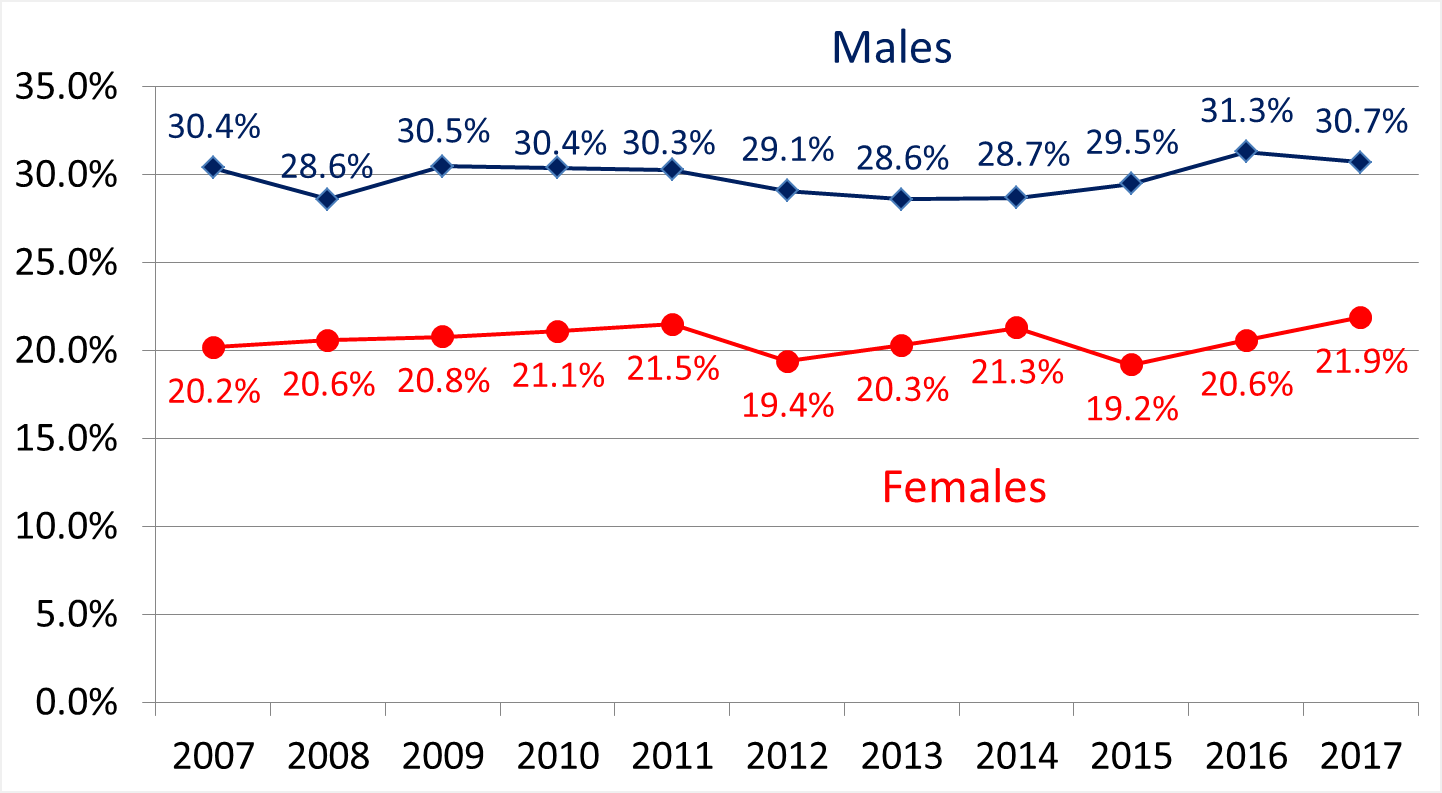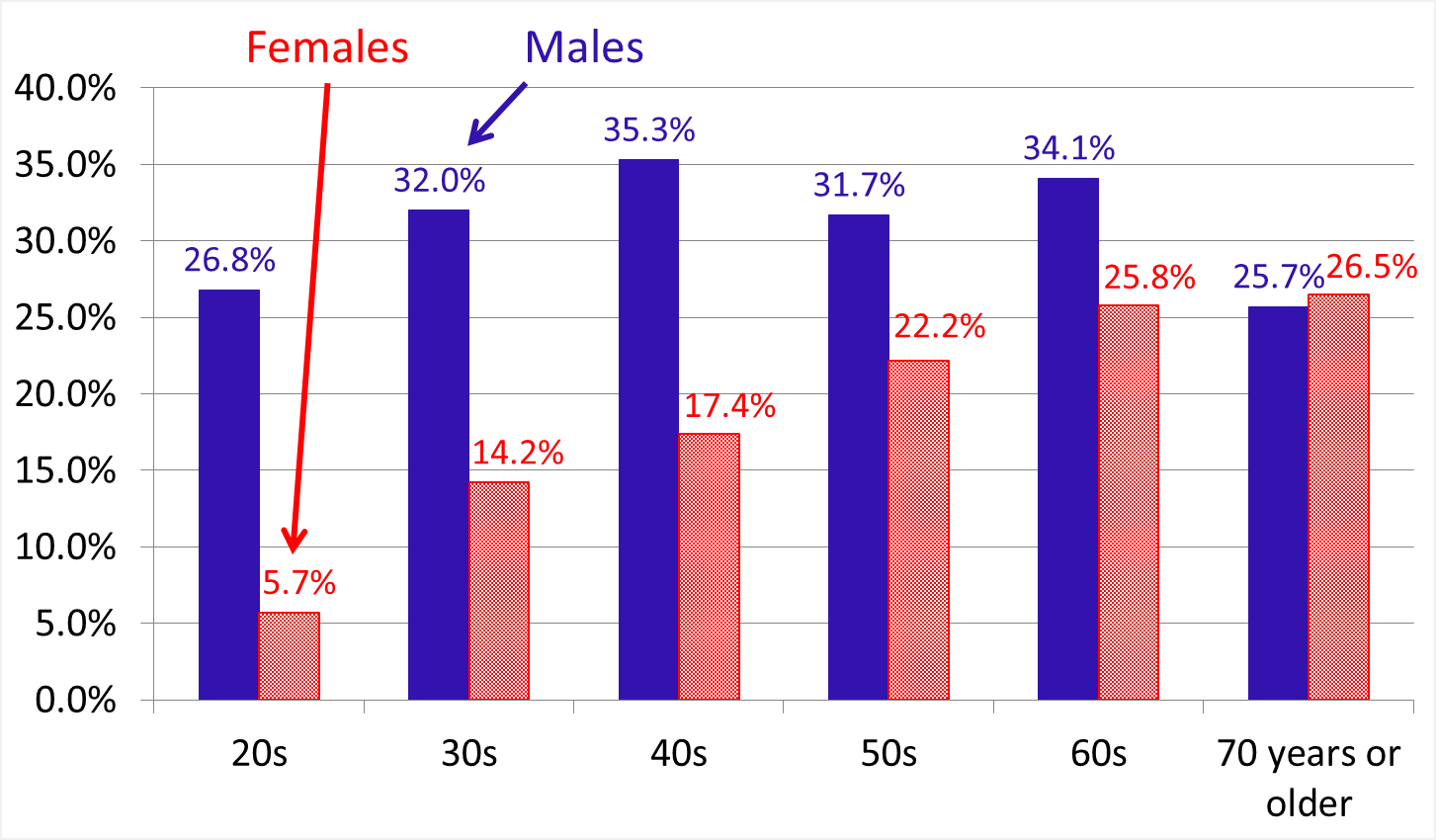Column Finance and the Social Security System 2019.02.21
【Aging, safety net and fiscal crisis in Japan】No.163: Obesity and excessive dieting
In Column No. 162, I introduced a survey on BMI conducted by the Ministry of Health, Labor and Welfare. BMI stands for Body Mass Index, which represents one's degree of obesity. The ministry defines obesity as a BMI of 25 or more.
Among adults aged 20 years or older, the percentage of those with a BMI of 25 or more was 30.7% for males and 21.9% for females in 2017. As shown in Figure 1, it has hardly changed in 10 years. Figure 2 shows the percentage of obese adults by age group in 2017. It is noteworthy that the percentage for females in their 20s is as low as 5.7%. This suggests that excessive dieting is prevalent among young women. According to the survey, the percentage of females in their 20s with a BMI of less than 18.5 has risen from 13.4% in 1981 to 21.7% in 2017.
Figure 1: Percentage of adults aged 20 or older with a BMI of 25 or more

Source: Ministry of Health, Labour and Welfare
Figure 2: Percentage of obese adults by age group in 2017

Source: Ministry of Health, Labour and Welfare
